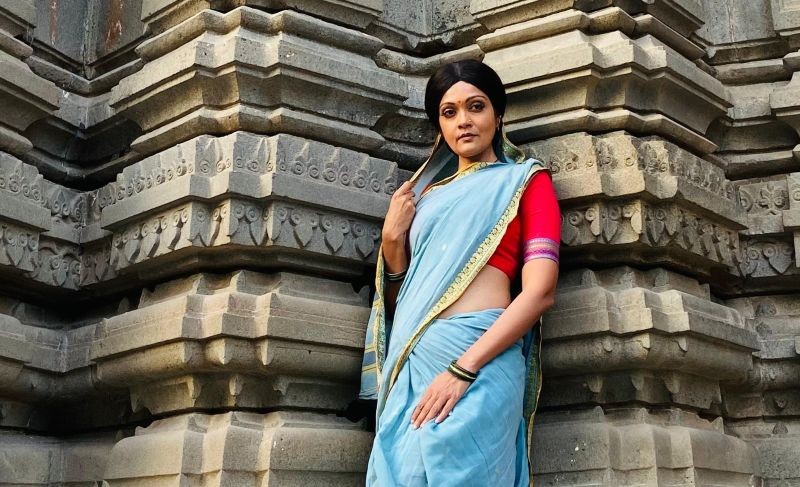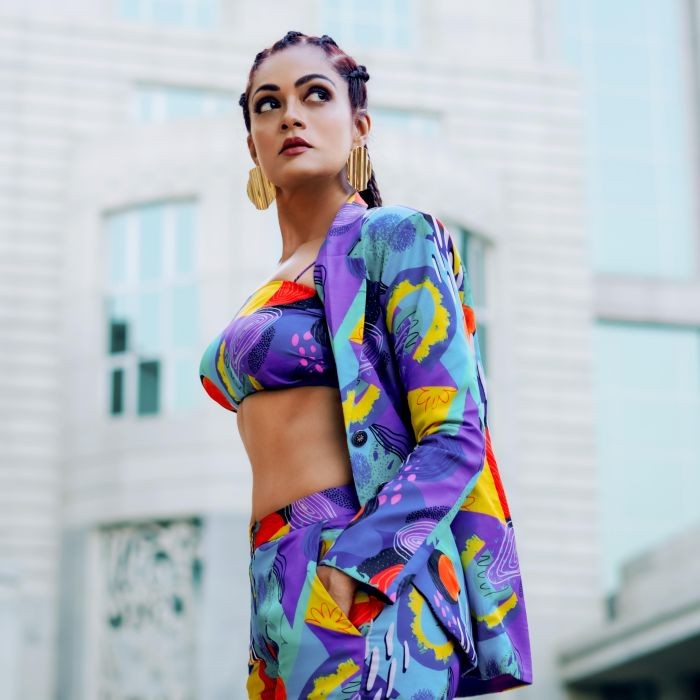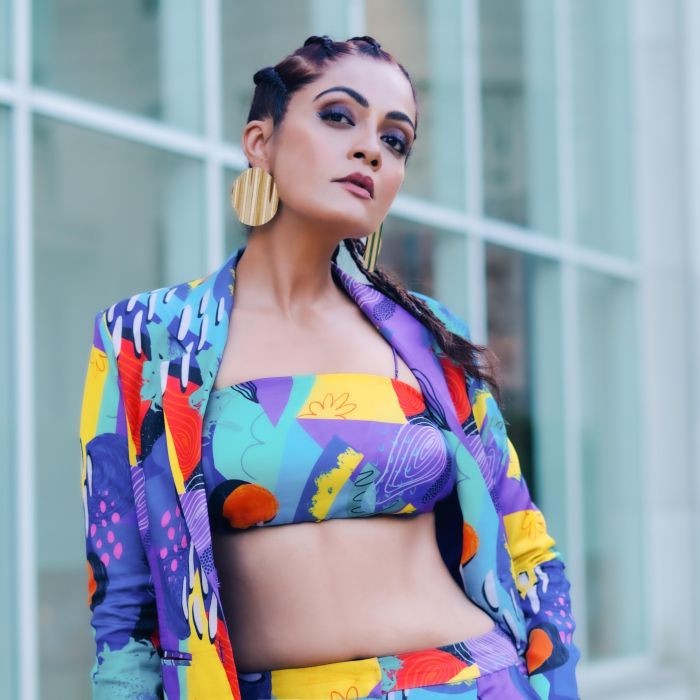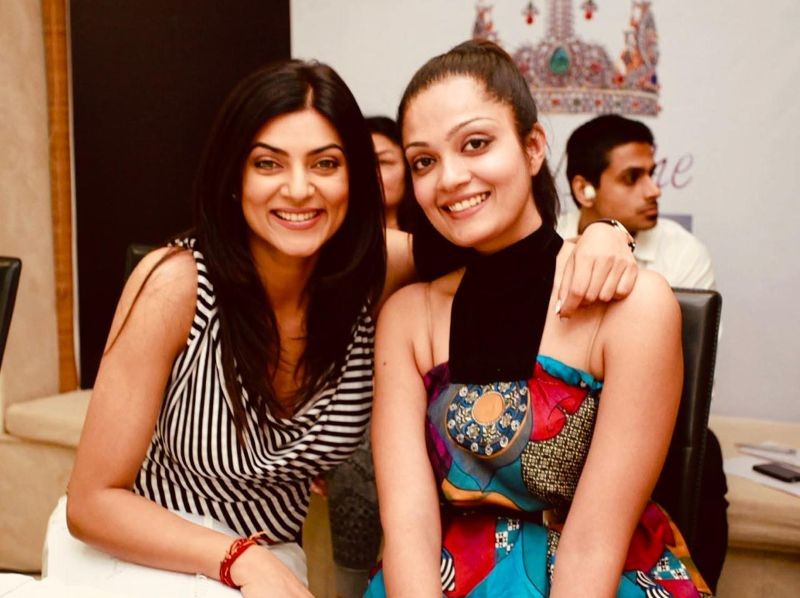As a human rights activist, Avali felt incredibly personal: Sheena Chohan on Sant Tukaram
Indian actress Sheena Chohan, who was honoured with the Human Rights Hero Award at the United Nations, last month made her Hindi debut with Sant Tukaram, a biography on 17th century poet and religious figure Sant Tukaram. In a candid conversation with IBNS-TWF correspondent Souvik Ghosh, Sheena talks about the project directed by Aditya Om, playing Avali and more. Excerpts...
Q. You played the female lead opposite Subodh Bhave in Sant Tukaram, and your portrayal of Avali Jija Bai is both tender and fierce—an emotional anchor to the story. What were some of the core qualities you focused on to bring Avali’s strength and vulnerability to life on screen?
A. It's tough to answer that question because as an actor one doesn't consciously try to find out the core qualities that need to be focussed on. Life is messy. Human beings are complex. Emotions and character traits don't show up one at a time, but come tumbling out in unsorted bunches. In many ways, a person is like an unmade bed. But we display ourselves most keenly through our actions and decisions. So in creating a person who we already know through legend and story, one has to above all, recognize that she is human, just like everyone else. So I worked very closely with Aditya, making myself a blank page for his vision while at the same time trying to see everything through her eyes, so that I can communicate her truth from a deep well of understanding.
 Sheena Chohan as Avali. Photo shared by Sheena Chohan. Photo shared by Sheena Chohan.
Sheena Chohan as Avali. Photo shared by Sheena Chohan. Photo shared by Sheena Chohan.
Q. What did it take for you to access that depth, and how did you prepare mentally and emotionally to embody Avali’s inner world?
A. The eyes are the windows to the soul, and the eyes do speak volumes and never lie. If one goes beneath the Wikipedia entry and put herself in Avali's place, faced with choices and challenges and honestly see them through her eyes, then her eyes become the actor's eyes, the key to her inner world is opened, the centuries melt away and people say "What a great job you did creating that character," when the truth is the character sprang alive in me, and I am just the vessel by which she communicates.
Q. How did you balance the responsibility of portraying a historical figure with your own artistic instincts and interpretation?
A. A mistake that one has to avoid is playing a revered person with too much reverence. The character becomes two-dimensional and unreal. The actor is just a person in costume pretending to be someone. Historical figures are real flesh-and-blood people. They have aches and pains, they get annoyed, happy, tired, excited, discouraged and also inspired. My responsibility to Avali is to make her a rich, three-dimensional individual, with flaws and good qualities, like the rest of us. Possibly, that's how people rise up from being ordinary to being extraordinary: their circumstances challenge them and they either rise to the challenge, or shrink from it.
 Photo shared by Sheena Chohan
Photo shared by Sheena Chohan
Maybe Avali, under more ordinary circumstances, would have lived an ordinary life, filled with joys and sorrows like the rest of us. But she didn't. So that's my responsibility to her. But my larger responsibility is to our audience. And that is to make Avali's life relevant to them, and have what she goes through move them emotionally. It won't work if I capture Avali's heart, only to lose the audience's. I need to accomplish both.
Q. Take us through your chemistry with Subodh Bhave. Can you share what it was like working with Subodh and how you both built that dynamic between Tukaram and Avali?
A. It's just the 3C's: Creation, Character and Communication. The first two an actor works on by himself or herself. But the third requires your fellow actors and the trust you have in them and that they have in you. It's in that interaction and the blending of your truth and their truth that the magic happens. It can't happen in a vacuum. And Subodh-Sir made the space very safe for me, so that after the first two were in, the third became smooth and real.
 Sheena Chohan as Avali. Photo shared by Sheena Chohan. Photo shared by Sheena Chohan.
Sheena Chohan as Avali. Photo shared by Sheena Chohan. Photo shared by Sheena Chohan.
Q. What does Avali represent to you personally?
A. Avali, to me, is the voice of silent strength—caught between devotion, duty, and her own quiet rebellion. I approached her by being a blank page for my director, letting my theatre background guide me into the depth and dignity she carries. Her journey reminded me how women like her have always balanced faith with fire. Many see her as Sita-like, and rightly so—but Avali also dares to ask, to feel, and to stand up, even in silence.
This is more than just a historical biopic—it’s a heart-touching, larger-than-life story that speaks to gender and caste equality, wrapped in the warmth of a family film. I hope people take away the power of quiet endurance—and the courage it takes to love with both strength and soul.
Q. How much did Avali transform you as an actor and an individual?
A. As an actress, I’ve always been drawn to characters that are empowering in themselves — women who may be quiet on the outside but unshakable within. Roles that carry the strength, sacrifice, and spirit that so many Indian women live every day. That’s why playing Avali in my Hindi film debut meant so much to me. She’s a rooted, real woman — who first fought for her family, and then walked alongside her husband in a fight far bigger than herself: the fight against gender and caste injustice.
 Photo shared by Sheena Chohan
Photo shared by Sheena Chohan
What moved me most was that Avali’s story, though centuries old, still speaks to women today. It speaks to being seen, heard, and valued — not just in your home, but in society, working for humanity! As someone who has spent years as a human rights activist, spreading awareness about basic rights and dignity, this role felt incredibly personal. It was more than acting — it was honoring the spirit of women who quietly lead revolutions.
Q. In a recent interview, you talked about how you were groomed by Sushmita Sen. Can you share how she groomed and mentored you in your early career?
A. The primary aspects of my acting career began with the mentorship of Sushmita Sen. One of the biggest lessons she taught me was that talent is just the starting point—but the real growth comes from being open to learning, grooming yourself, and constantly studying.
She herself used to share how she couldn’t speak proper English in her early years, but through hard work and self-grooming, she became one of the most articulate speakers and thought leaders today. From her, I learned the value of professionalism, self-respect, and respect for others. She also showed me that acting isn’t just about performing—it’s about researching, learning, and ultimately surrendering to a character.
 (L-R) Sushmita Sen and Sheena Chohan. Photo shared by Sheena Chohan
(L-R) Sushmita Sen and Sheena Chohan. Photo shared by Sheena Chohan
At the same time, she made me see the business side of this world: that it’s not about chasing fame, but about building a career with purpose and discipline. Most inspiring of all was her belief in dreaming and manifesting, staying in a higher positive frequency, and creating the life you want. That philosophy shaped the clarity and conviction with which I stepped into this Film industry.
(Photos shared by Sheena Chohan)
IBNS
Senior Staff Reporter at Northeast Herald, covering news from Tripura and Northeast India.
Related Articles

Deepika Padukone’s sister Anisha set to tie the knot! Meet her fiance with a legendary Bengali film connection
Mumbai/IBNS: Bollywood star Deepika Padukone’s younger sister Anisha Padukone is set to marry her long-time boyfriend Rohan Acharya, a Dubai-based entrepreneur, Deccan Herald reported.

Dhanush, Kriti Sanon's Tere Ishk Mein maintains strong run at box office
Mumbai/IBNS: The Dhanush and Kriti Sanon starrer Tere Ishq Mein continued its strong performance at the box office on its second day, extending its impressive opening weekend collection.

World of theatre in shock! Oscar winning legendary British playwright Tom Stoppard dies at 88
London/IBNS: Oscar-winning British playwright Tom Stoppard passed away at the age of 88 on Saturday, his agents said, according to media reports.

End of an era! Legendary Kannada comedian MS Umesh dies at 80
Bengaluru/IBNS: Veteran Kannada actor Mysore Srikantayya Umesh, popularly known as MS Umesh, passed away on Sunday at the age of 80, after a battle with cancer, media reports said.
Latest News

More than 700 players to compete in 67th Ashok Ruia Memorial National Bridge Championship in New Town from Dec 1

Tesla chief Elon Musk reveals partner Shivon Zilis is 'half-Indian', says their son carries 'Shekhar' as middle name

‘Stop venting frustration of Bihar defeat here!’: PM Modi taunts Opposition as Parliament's Winter Session explodes into action

Maharashtra honour killing: 20-year-old man murdered; girlfriend declares herself his wife at funeral

